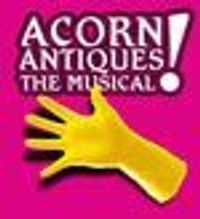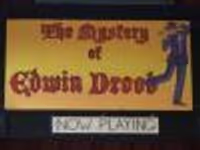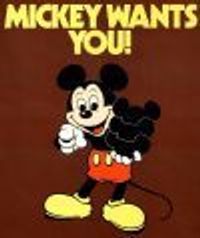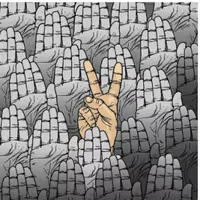MY FAIR LADY COMING TO AMERICA!
#0MY FAIR LADY COMING TO AMERICA!
Posted: 6/21/05 at 10:36am
The recent Nation Theatre/Trevor Nunn (which transfered to Theatre Royal Drury)revival of MY FAIR LADY will tour the UK from Autumn and then transfer to America for its 50th Anniversary.
Whether the transfer will be a tour i dont know, but obviously Broadway is the plan.
So Watch out Broadway, My Fair Lady is back!
The new revival is fantastic! Superb.
#1re: MY FAIR LADY COMING TO AMERICA!
Posted: 6/21/05 at 10:43amhttps://forum.broadwayworld.com/readmessage.cfm?thread=855519&dt=062105092802
#2re: MY FAIR LADY COMING TO AMERICA!
Posted: 6/21/05 at 12:12pmI am in love with My Fair Lady, as you can tell by my username!
#3re: MY FAIR LADY COMING TO AMERICA!
Posted: 6/21/05 at 12:21pmam i the only one bothered by the mysoginistic message sent by this musical? the thing was originally written as pygmalion by George Bernard Shaw as a FEMINIST message, and was twisted into a love story in the 60's. there is no worse message than to promote the idea that a woman should be taken by a man, turned into his personal puppet, and then once he has made her just as he likes, he decides hes in love with her and shes supposed to swoon. in the original play she leaves him when she realizes what hes done to her. is no one else in the least bit bothered by this outdated of feminine weakness??
#4re: MY FAIR LADY COMING TO AMERICA!
Posted: 6/21/05 at 12:24pm
^^ It's a period piece -- from top to bottom. Any sexism that's there exists purely because of the Edwardian time frame. It's never bothered me in the slightest.
#5re: MY FAIR LADY COMING TO AMERICA!
Posted: 6/21/05 at 12:30pmbut what im saying is the piece, as it was written in its original time frame, was NOT sexist. its the 1960's adaptation that made it sexist. Shaw, as was Ibsen, was speaking out AGAINST such treatment of women (marriage as it existed at the turn of the century was extremely problematic in England) and i think that if shaw could see what his piece had turned into he would be very dissappointed.
trpguyy
Broadway Legend Joined: 2/25/05
#6re: MY FAIR LADY COMING TO AMERICA!
Posted: 6/21/05 at 12:34pmShaw's purpose of writing Pygmalion was to promote proper usage of the English language. Period.
#7re: MY FAIR LADY COMING TO AMERICA!
Posted: 6/21/05 at 12:38pm
^^ Which is exactly why I love it!
Arishmoof: I can see where you're coming from. I guess I'm not familiar enough with the source material to comment further. I know the ending of the musical is substantially different than the original story though -- I just don't know the details.
#8re: MY FAIR LADY COMING TO AMERICA!
Posted: 6/21/05 at 12:38pmIn myproduction, we were allowed to pick the ending for whether Eliza would come back or not. We wanted her to come back so we would have a happy ending. I'm sort of a feminist and I dont' think the message is anti-feminist at all. Eliza had nothing left. She spoke too well to work in a flower shop and she didn't love Freddy. She wanted to go back to Higgins because she loved him too.
#9re: MY FAIR LADY COMING TO AMERICA!
Posted: 6/21/05 at 12:39pm
Eliza doesn't have to swoon at the end. I've seen that scene interpreted many different ways. It's never clearly explained why Eliza "returns" to Higgins in the first place. It could be she forgot something or that she wanted to give him one final tongue lashing, but when she sees him listening to her recorded voice she takes pity on him. Higgins is a defeated man at the play's end, whether he admits it or not.
That said, I wish a new production of MLF would open on Broadway instead of this one. All the intimacy and tenderness has been sapped out of the show and has been replaced with unemotional spectacle. I felt so sorry for the actor playing Alfred. You couldn't find him during his two songs because of the crowds and confusion.
#10re: MY FAIR LADY COMING TO AMERICA!
Posted: 6/21/05 at 12:40pm
not really trypguy, because if it was then he would be criticizing the working class, which he wasnt. he was criticizing the upper class for being so self righteous when in fact the working class ended up having more morals. this is a very strong theme in england in the 19th century- dickens wrote about the same thing in Hard Times
#11re: MY FAIR LADY COMING TO AMERICA!
Posted: 6/21/05 at 12:42pmShaw once said that he couldn't think of an unhappier ending than Eliza and Higgins winding up together.
#13re: MY FAIR LADY COMING TO AMERICA!
Posted: 6/21/05 at 12:51pmMy Fair Lady- isnt the fact that Eliza, as you say, has nothing left, a bit dismal? this in itself is commentary on the state of things at the time, because you are right. she would have nowhere to go and nothing to do unless she married. therefore it should make us sad that she has no choice but to go back to Higgins, because he was such a jerk to her in the first place. women had no social status without their husbands. at least with shaw's original ending, we have the idea that Eliza is going to go out and try to fight her way into a life that suits her. it leaves the idea of optomistic possibilities, and at the end of pygmalion we are proud of her for walking out and keeping her dignity
#14re: MY FAIR LADY COMING TO AMERICA!
Posted: 6/21/05 at 12:57pmArishmoof-I guess you're right, you would be happy that Eliza kept her dignity. But in my production, our Higgins played his character so pathetically at the end that everyone was happy when Eliza came back so he could stop groveling.
#15re: MY FAIR LADY COMING TO AMERICA!
Posted: 6/21/05 at 12:58pm
its because of its time - thats what happened back then! Nothing we can do about that.
A fantastic musical and one of the all time greats.
#16re: MY FAIR LADY COMING TO AMERICA!
Posted: 6/21/05 at 1:19pm
my fair lady- that is a very good way of dealing with the discrepency, i like the idea of higgins being played that way, ive never seen it.
ryanwoods- just writing it off as "thats the way it happened back then" is just the kind of thinking that keeps you from thinking critically and moving forward. sexism still happens majorly today (just look at the gap in payment for the same jobs between the sexes) and needs to be fought with positive messages. just look at the positive message La Cage put out there for the gay family community.
#17re: MY FAIR LADY COMING TO AMERICA!
Posted: 6/21/05 at 1:34pmwould it be possible, just once, for someone to actually sing the Higgins part? is it even written musically, other than as rhythmic speech? I've never heard it sung, but I don't know if that's because everyone's copying Rex Harrison's style or if the creators wrote around his lack of pitch and didn't bother with notes in the first place. Anyone know?
#18re: MY FAIR LADY COMING TO AMERICA!
Posted: 6/21/05 at 1:45pmarish, Shaw and Ibsen didn't really like women all that much. Get over it.
#19re: MY FAIR LADY COMING TO AMERICA!
Posted: 6/21/05 at 1:48pmget over you. dont be rude. and what evidence do you have to that idea? like it or not, there WERE male feminists, and thankfully still are a few... William Godwin was one. Shaw and Ibsen both read Godwin.
#20re: MY FAIR LADY COMING TO AMERICA!
Posted: 6/21/05 at 1:53pm
L&L wrote the music for Higgins' songs around the fact that he has a gross lack of range...not pitch. They explain this in detail on a bonus track on the most recent release of the cast album.
I LOVE this show. I love the unconventional love story. It reminds me so much of my favorite Shakespeare comedy Much Ado About Nothing. In all honesty, both characters are terrible towards each other, but they get over it.
I love how Higgins is so bent on people speaking proper English. It makes me ridiculously happy.
And one of my favorite songs in the history of musical theatre is "I've Grown Accustomed To Her Face". It's so in character and so well written and perfectly performed. I love it. The whole score is freaking awesome, actually.
And now I'm gonna stop gushing.
Updated On: 6/21/05 at 01:53 PM
bill mobley
Understudy Joined: 2/28/05
#21re: MY FAIR LADY COMING TO AMERICA!
Posted: 6/21/05 at 1:54pm
In the movie version when Eliza returns, and Higgins asks for his shoes, it is not played as something romantic, or a happy ending. It's surprisingly unsentimental. I got the feeling that there would be more arguments between these two in the future.
#22re: MY FAIR LADY COMING TO AMERICA!
Posted: 6/21/05 at 1:56pmThey were not male feminists at all. Do some research or I guess my BFA means nothing?
#23re: MY FAIR LADY COMING TO AMERICA!
Posted: 6/21/05 at 2:00pm
Are they putting back in the scene where Pickering and Higgins make out?
Because you KNOW those two are gay.
#24re: MY FAIR LADY COMING TO AMERICA!
Posted: 6/21/05 at 2:02pmCorrection on the Ibsen statement, I don't have enough evidence to back it up. However Shaw felt women were "Foolish Creatures" and the term Chauvinist comes from the man's last name. Any other questions?
Videos












